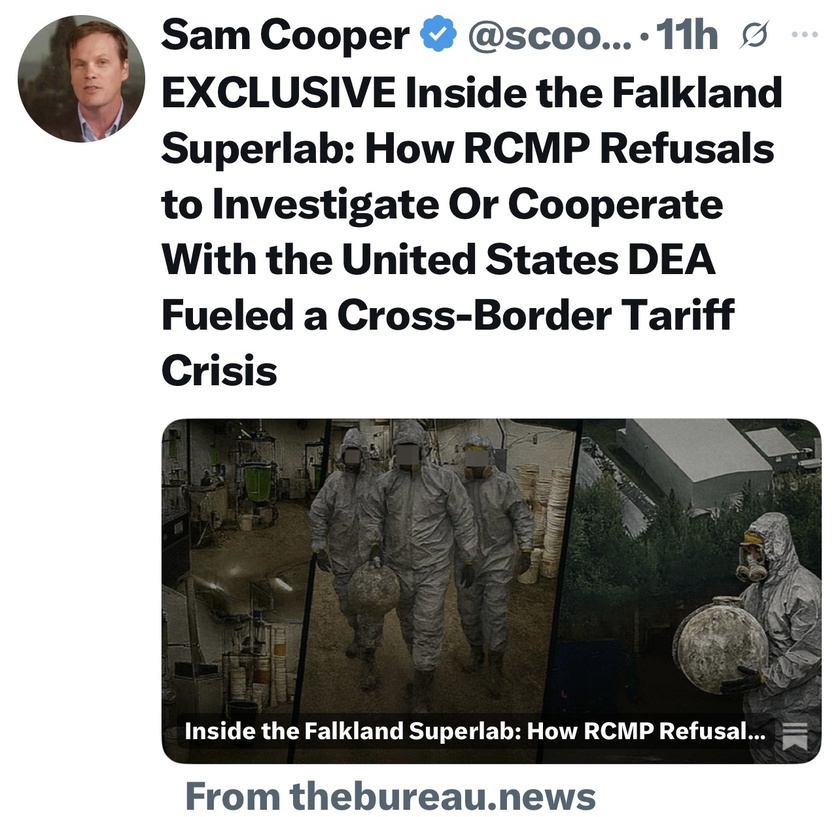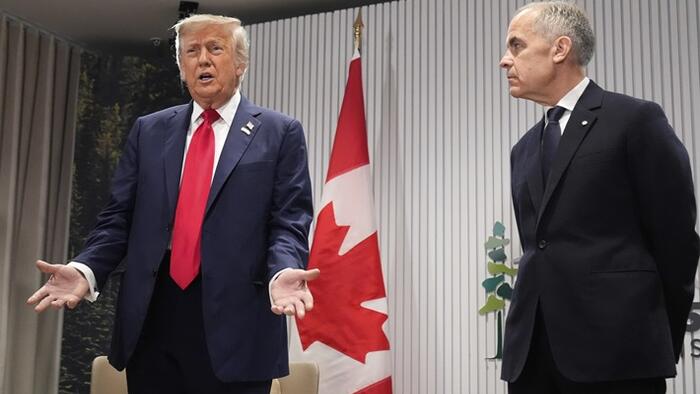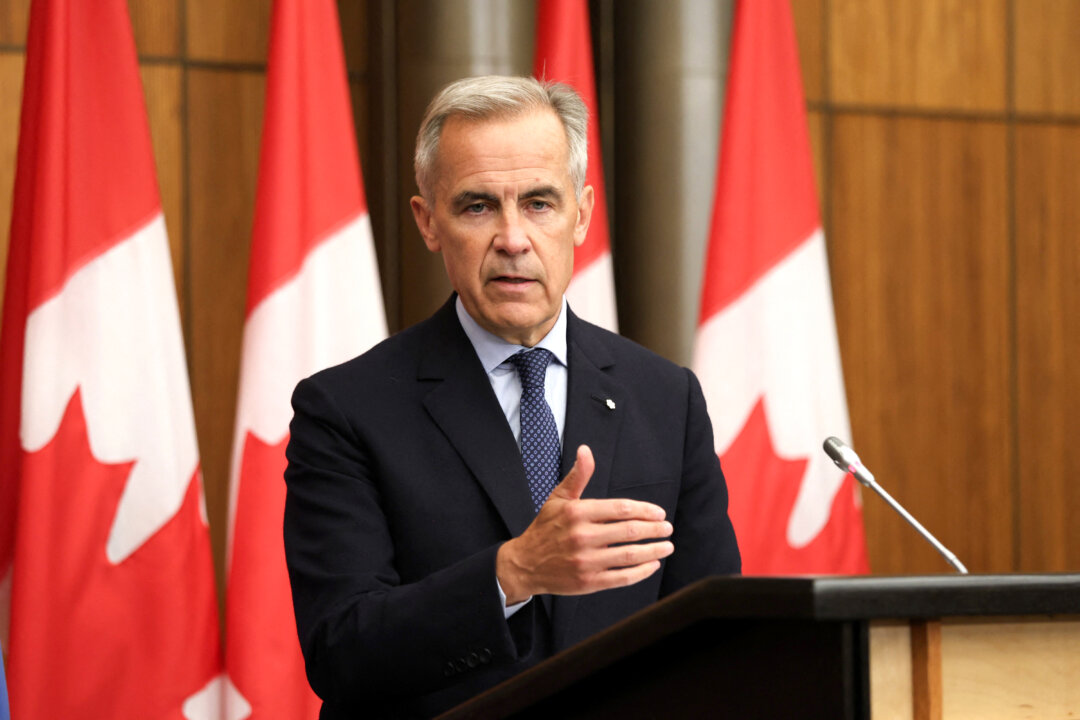
SO we have an Incompetent & possibly corrupt/criminal government but also have an Incompetent, corrupt RCMP, Border control & criminal National Banks in Canada? This report appears to confirm this & tells us WHY the US government does NOT trust this Government as a credible & trustworthy five eyes participant! What do you think Canadian Taxpayers??? I found this not surprising after 10 years but shocking nevertheless & but for the honesty of Sam Cooper, investigative reporter, might have doubted the total Hypocrisy of the Federal Government in their dishonesty…..
nor the entrenched culture of non-cooperation between Canadian agencies and U.S. enforcement that intensified under Justin Trudeau’s government and, according to several U.S. officials including Donald Im, appears to have worsened under Carney — at a time of public criticism and activism from the Trump administration. “Cooperation between Ottawa and the DEA has never been lower than it is right now,” one source said.
WASHINGTON — Canada’s federal police refused to investigate or cooperate with the United States Drug Enforcement Administration on a British Columbia fentanyl superlab probe tied to chemical-precursor shipments from China into Vancouver in late 2022, according to senior U.S. officials. More than a year later — only after the U.S. Treasury sanctioned Iranian-Canadian businessman Bahman Djebelibak and his Health Canada–licensed company Valerian Labs, naming them as part of a Chinese fentanyl trafficking syndicate that Washington sought to disrupt — did the RCMP finally open a siloed investigation. The force continued to refuse coordination or information sharing with the American agents who had initiated the case. In an exclusive interview, Derek Maltz, DEA Acting Administrator in 2025 with oversight of the matter, called the B.C. superlab case a “major disaster.”
This explosive information, confirmed to The Bureau by current and former senior U.S. officials, has never before been reported in the Falkland, B.C., superlab case, which was covered internationally by outlets including The New York Times. It amounts to a rare public rebuke that elevates the matter from a Canadian policing failure into a high-consequence geopolitical dispute.
It also helps explain Washington’s decision on July 31 to impose 35 percent tariffs on Canada, reinforcing President Donald Trump’s claim that senior officials had warned him Ottawa failed to cooperate or devote sufficient resources to interdictions against Chinese- and Mexican-linked drug trafficking networks blamed for killing hundreds of thousands of North Americans. Three weeks ago, in a statement underscoring intelligence tied to the Falkland lab case, the White House said: “Mexican cartels are increasingly operating fentanyl labs in Canada.” It added: “Canada-based drug trafficking organizations maintain robust ‘super labs,’ mostly in rural and dense areas in western Canada, some of which can produce 44 to 66 pounds of fentanyl weekly.”
‘A major disaster on that big lab in British Columbia’
In multiple interviews with senior officials — including Derek Maltz, who retired this year after Mexico carried out an unprecedented wave of extraditions of dozens of cartel leaders to the United States — The Bureau confirmed devastating details of the Falkland superlab in British Columbia, hidden in mountainous terrain between Vancouver and Calgary. The case became public only in October 2024 — to the surprise of DEA investigators — when the RCMP announced it had dismantled what it called the most sophisticated drug laboratory ever uncovered in Canada, capable of producing up to 95 million potentially lethal doses of fentanyl. Investigators seized a staggering half-ton of narcotics: 54 kilograms of fentanyl, 390 kilos of methamphetamine, 35 kilos of cocaine, 15 kilos of MDMA, smaller amounts of cannabis, and large quantities of precursor chemicals from China. Police estimated the street value at about $500 million.
The raid also exposed the militarized posture of Mexican cartel–style operations, with 89 firearms — including handguns, AR-15-style rifles and submachine guns, many loaded — along with explosive devices, ammunition, silencers, high-capacity magazines, body armor, and roughly $500,000 in cash. So far, only a man named Gaganpreet Singh Randhawa, believed to be a lower level suspect, has been charged after the RCMP’s raid on the Falkland lab and related Vancouver-area properties. What Ottawa failed to share with Canadians, U.S. sources say, is that the DEA’s Newark, New Jersey office had already delivered the case to Canadian authorities through the U.S. Embassy in Ottawa nearly two years earlier — warning of precursor shipments tied to Djebelibak’s company, Valerian Labs. Canadian police, the officials said, not only declined to cooperate but also delayed launching their own siloed probe until after Washington imposed sanctions on Djebelibak in October 2023.
“The way they conducted business was disgusting, honestly,” Maltz said in an August 2025 interview. “And we can’t have that kind of activity when our countries are being attacked at levels that we’ve never seen in the history of our countries.”
Maltz, who limited his remarks to high-level confirmations, agreed with numerous other U.S. officials interviewed by The Bureau that the Falkland breakdown was neither isolated nor new — but part of a recurring pattern of refusal and delay in Ottawa’s dealings with American law enforcement.
“Over the years, we’ve had historical issues with the RCMP not sharing properly, and most recently there was a major disaster that happened on that big lab in British Columbia,” Maltz confirmed.
“The superlab was part of some ongoing stuff going on with DEA New Jersey. There was a major frustration with the DEA agents in the United States that had investigative equity and investigative knowledge on this particular case. And we were trying to share and cooperate. And it was a major problem.”
Like other senior U.S. experts interviewed by The Bureau this year regarding Canada’s increasing exploitation by Chinese and Mexican fentanyl networks, Maltz said Ottawa’s repeated inability to investigate and prosecute major drug trafficking and money laundering networks — and its frequent refusal to cooperate with international allies — stems from a combination of weak, outdated laws and ineffective leadership.
Other U.S. and Canadian police experts also warned they believe the RCMP and relevant Canadian agencies such as Canada Border Services suffer from significant corruption concerns.
“It goes down to the basic information sharing, the antiquated laws, that people are not stepping up and not leading the efforts,” Maltz said of the Falkland lab case. “When I was Acting Administrator, I met with the current leadership and it was actually sad because these guys came to see me and they want to do the right thing. They say all the right things, but they’re so far behind and the laws are so antiquated and so archaic.”
In an interview, Donald Im, who retired in 2022 after a long career as a senior DEA official, described the synthetic narcotics overdose crisis in North America — fueled by Chinese Communist Party chemical suppliers and cartel distribution networks — as a “slow motion, weapons of mass destruction that exposes the vulnerability of whole nations and regions.”
As part of the DEA’s Special Operations Division, Im oversaw sprawling investigations into global Chinese money laundering systems and fentanyl precursor supply chains. He said he provided support to the New Jersey DEA probes that became a linchpin of the agency’s strategy and indirectly tied into the Falkland superlab case. These investigations exposed how Chinese underground bankers — often operating from Vancouver and Toronto — were moving staggering nine-figure flows — in some cases, hundreds of millions within months — through U.S. and Canadian financial institutions, as well as through international trade routes between China, Mexico, Canada, and South America, to sustain the fentanyl trade.
Those innovative cases, Im said, connected Chinese laundering networks across North America to an extraordinarily wide array of actors, demonstrating that seemingly local probes connected to the same global syndicates moving precursors from China, laundering through Canadian and U.S. banks, and producing fentanyl on an industrial scale in hidden labs across Canada.
Im added, in his opinion: “If only one person was arrested in that sophisticated Falkland laboratory? It is either the RCMP is incompetent or, politically, they’ve been neutered.”
That assessment is supported by previous case studies. Another source for this story — deeply troubled by the RCMP and Canadian prosecutors’ decisions not to pursue major targets uncovered in probes of drug-laundering networks tied to Chinese, Iranian, and Mexican syndicates — said they learned the RCMP, while conducting a major investigation into Iranian state-linked drug launderers in Toronto and Montreal, stumbled onto a Chinese suspect moving $600 million in just six months. Yet when briefed, the DEA was told the RCMP would not pursue the case, citing a different investigative focus.
We reached out to the RCMP. They said “No”
While Derek Maltz spoke only at a high level about Washington’s concerns with Ottawa’s handling of the Falkland case, another U.S. official provided a more detailed account of the behind-the-scenes drama between American and Canadian agencies.
The U.S. government source, who had direct knowledge of the case and requested anonymity due to ongoing investigations, said that in late 2022 the DEA’s Newark, New Jersey office alerted colleagues at the U.S. Embassy in Ottawa to precursor shipments from China bound for Valerian Labs, Inc., a Port Coquitlam–based company owned by Bahman Djebelibak, publicly known as “Bobby Shah.”
The embassy source recalled New Jersey DEA teams warning: “There are some precursor chemicals being shipped from China, destined for Vancouver. We think it’s going to some guy out there that could be tied into a bunch of precursor and potential lab stuff.”
DEA investigators said they wanted to see if the case could gain traction in Canada. Embassy officials deemed the matter significant and approached the RCMP. “We reached out to the RCMP, and said, ‘Do you guys have any interest in working this?’” the U.S. government source recalled. “They said no. It was a straight no.”
Time passed and American officials pressed the RCMP again to investigate, a U.S. government source said.
But Canadian officials explained the force could not pursue a fentanyl lab probe into Shah, citing an ongoing homicide investigation into his estranged wife, Vancouver realtor Ramina Shah, who was stabbed to death in a Coquitlam parking lot on January 27, 2022. No charges have been laid in that case. A U.S. government source said the explanation was viewed in Washington as a pretext to avoid tackling the fentanyl investigation.
Meanwhile, documents reviewed by The Bureau show that the 2018 UK corporate registry for Valerian Labs Ltd.—registered to the Shahs’ shared address at 1130-1971 Broadway Street in Port Coquitlam—lists both Bobby and Ramina Shah as directors appointed on November 8, 2018. The filing’s Statement of Capital, denominated in Great Britain Pounds, records each as a Person with Significant Control, holding more than 25 percent of both shares and voting rights.
A U.S. source said that in 2023, after the RCMP rebuffed repeated approaches from senior American officials — providing no cooperation to interdict fentanyl precursor shipments into Vancouver and allegedly refusing to collaborate on a joint investigation into Shah’s suspected network — U.S. authorities ultimately advanced the case through another channel.
On October 3, 2023, under the Biden administration, the U.S. Treasury’s Office of Foreign Assets Control (OFAC) designated Valerian Labs, Valerian Labs Distribution Corp., and Bahman Djebelibak under Executive Order 14059 — the only Canada-based entities named among “28 individuals and entities involved with the international proliferation of illicit drugs, including a China-based network responsible for the manufacturing and distribution of ton quantities of fentanyl, methamphetamine, and MDMA precursors.” All the remaining targets were in China.
“Treasury is taking sweeping action with our colleagues in law enforcement to expose and disrupt a network responsible for manufacturing and distributing illicit drugs, including fentanyl and other substances that take thousands of American lives each year,” the department said in its statement.
Treasury described Valerian as a “major customer” of a Chinese pill-die manufacturer and documented its imports of methylamine hydrochloride, a key precursor for methamphetamine and MDMA. The filings also detailed attempts to procure 2,000 liters of chloroform, 800 liters of dichloromethane, and 200 kilograms of iodine — chemicals commonly used in the production of fentanyl, heroin, and methamphetamine. Valerian was further tied to Hebei Guanlang, one of the Chinese firms sanctioned the same day for supplying fentanyl and methamphetamine precursors.
Health Canada suspended Valerian’s licences after the OFAC designation, actions now being challenged in Federal Court. Djebelibak has strongly denied any wrongdoing and maintained his innocence in Canadian media reports.
At the time, U.S. Embassy officials in Ottawa — under the Biden administration — pressed Canadian authorities again. “We said, ‘We really think this is something you guys should work on,’” a U.S. government source recalled. “And they said, ‘No, we’re not going to work on it.’ We insisted: ‘You’ve got to do something.’ Their response was, ‘Well, we’ll assist the U.S. investigation, but that’s all we’ll do.’”
According to the source, American investigators learned about six months later that Ottawa had finally decided to investigate — but only on its own, and more than a year after the U.S. Embassy first alerted Canadian officials to Chinese precursor shipments tied to a suspected B.C. fentanyl lab network. At first, Ottawa promised to share the results of its probe with American investigators. But ultimately, U.S. officials said, they were later told no information at all would be shared.
A U.S. official said the move fit a familiar Canadian pattern: “We were saying, ‘How does this happen? You didn’t want anything to do with this lab investigation. We could only surmise they jumped in because they were afraid, just like in the past, that it would blow up and their people would start asking questions: “Why didn’t you do it? Why did the U.S. do it?” Which has happened several times before. It makes them look bad — because they don’t want to work on it, or can’t work it, or whatever excuse.’”
The source said U.S. agencies only learned of the RCMP’s October 25, 2024 Falkland raids through Canadian

It’s unusual for voices from opposite ends of Canada’s political spectrum to issue the same warning. Andrew Coyne—a CBC mainstay and veteran establishment journalist—has often defended positions I’ve strongly opposed, from the Freedom Convoy crackdown to the government’s handling of COVID. Yet despite those differences, his recent analysis and mine converge on the same unsettling truth: Canada’s democracy is not what it seems.
The representative Canadians believe they are electing—the legislator who speaks and votes on their behalf—has largely become a fiction. In practice, the system operates in a rigid, top-down fashion that bears little resemblance to the civics-class ideal. The gap between perception and reality has never been wider. That is the real dissonance at the core of Canadian politics. And when people who rarely agree begin to trace the same cracks in the foundation, it becomes clear that what’s being defended as “our democracy” is less a shared possession of citizens than a private preserve of insiders. Or, ...
















